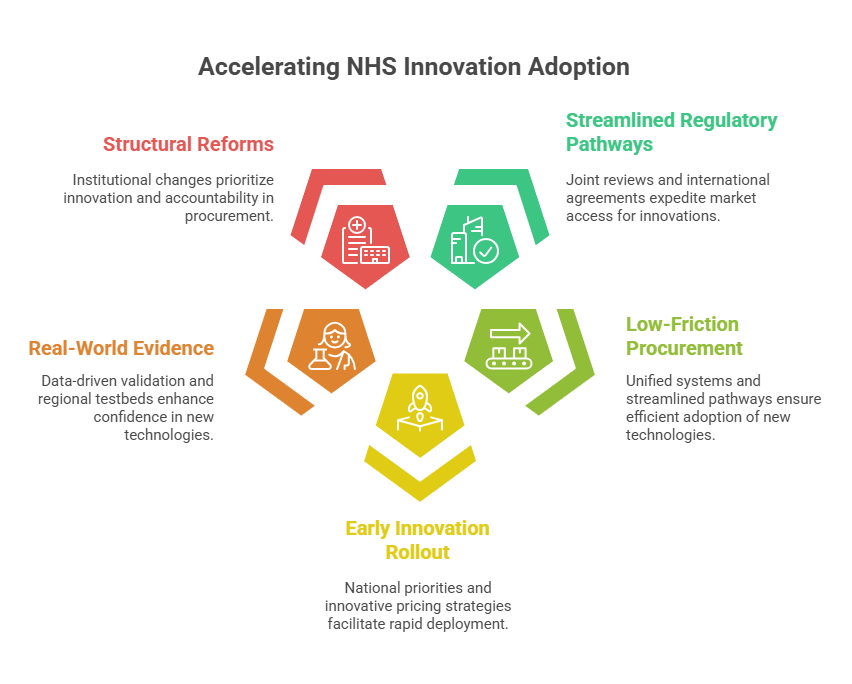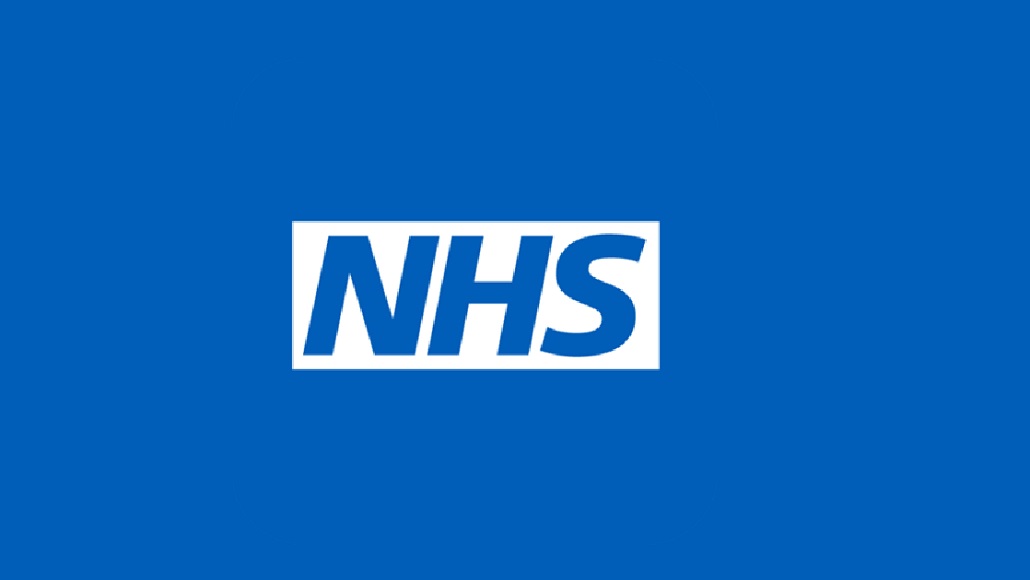The UK Government’s NHS Life Sciences Sector Plan is ushering in a transformative era for the National Health Service (NHS), aimed at closing the gap between medical innovation and patient access. Through a comprehensive set of reforms and operational changes, the plan is designed to fast-track the adoption of cutting-edge medicines, medical technologies, and digital health tools across the NHS—removing longstanding regulatory, commercial, and structural barriers in the process.
Key Enablers for Faster NHS Adoption

1. Streamlined Regulatory and Market Access Pathways
A cornerstone of the plan is the tighter integration between the Medicines and Healthcare products Regulatory Agency (MHRA) and the National Institute for Health and Care Excellence (NICE). This collaborative model allows for joint reviews and parallel approvals, cutting the lag time between regulatory clearance and NHS rollout—potentially reducing patient wait times by 3 to 6 months.
The MHRA’s risk-proportionate review system is also being modernised to provide clearer, faster paths to market for high-impact innovations, supported by increased investment in regulatory capacity. Further, international regulatory recognition agreements will allow products approved in trusted markets such as the US and EU to bypass redundant steps and gain faster NHS access.
2. Low-Friction Procurement and Adoption Mechanisms
To eliminate local inconsistencies and delays, the government is introducing a Single National Formulary for medicines. This unified system will ensure that once a treatment is approved, it can be prescribed anywhere in the NHS without regional variation.
In the medical technology space, the upcoming Rules-Based Pathway (RBP)—slated for launch in April 2026—will provide a streamlined commercial route for high-value innovations, particularly those addressing unmet clinical needs. Complementing this is the NHS Innovator Passport, which simplifies evaluation processes for digital and device-based solutions, enabling quicker procurement across the NHS.
3. Early and Widespread Innovation Rollout
The plan emphasises the importance of clear direction and prioritisation. National Innovation Priorities will guide development efforts and fast-track NHS-wide scaling for technologies that address these predefined focus areas.
Innovative pricing strategies, including confidential commercial models for primary care, are being introduced to ensure that novel therapies can be deployed faster and equitably—eliminating some of the pricing bottlenecks that have historically delayed adoption.
4. Real-World Evidence and Regional Testbeds
Recognising the value of real-world performance data, the plan actively supports the use of real-world evidence (RWE) to validate MedTech and digital solutions. This shift empowers innovators to demonstrate value outside of traditional clinical trials and helps decision-makers within the NHS adopt new technologies more confidently and swiftly.
To further this, Regional Health Innovation Zones will serve as controlled environments for testing and refining innovations before they’re scaled nationally, reducing risk while increasing speed to adoption.
5. Structural Reforms and Institutional Accountability
The NHS is being restructured to prioritise value and innovation in its procurement processes. A new growth mandate for the NHS Supply Chain requires that innovation be factored into purchasing decisions—not just cost efficiency.
Meanwhile, the Innovation Scorecard, a national tool used to track adoption of new medicines and technologies, is being enhanced to flag slow uptake and spotlight successful implementations. These accountability mechanisms will ensure that innovations don’t just reach the market—they reach patients.
Digital Transformation as a Core Enabler
By 2026, the MHRA aims to become a digitally enabled, AI-assisted regulator, capable of delivering faster, more intelligent reviews. This overhaul will help align the speed of approval with the speed of adoption, allowing healthcare providers to access and implement innovations more efficiently.
Additionally, the Health Data Research Service (HDRS) will open up secure, AI-ready NHS datasets to innovators and clinicians, expediting evidence generation and supporting smarter, data-informed decisions about what gets adopted.
Conclusion
The UK’s NHS Life Sciences Sector Plan marks a pivotal moment for the country’s healthcare innovation landscape. By aligning regulatory frameworks, streamlining procurement, embracing real-world data, and modernising digital infrastructure, the plan creates a clear, scalable pathway from lab bench to hospital bedside.
For patients, it means faster access to life-saving therapies. For innovators, it offers a more navigable and supportive environment. And for
the NHS, it promises a future where evidence-based innovation becomes the norm—not the exception.


















